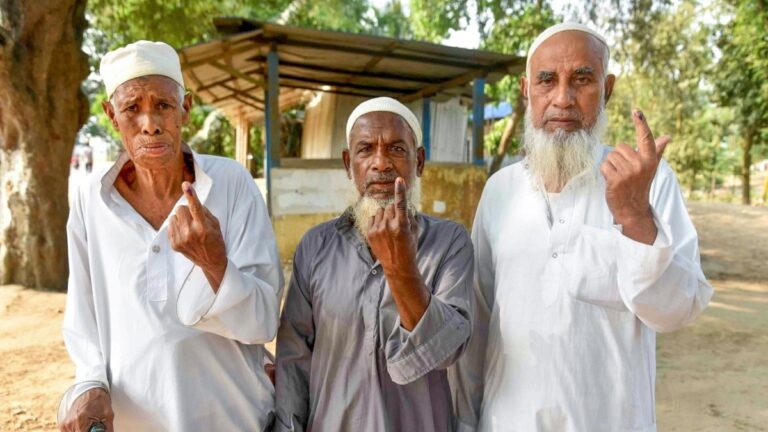Muslim voters are a game changer in the 2024 Indian Lok Sabha elections. Axis My India estimates that 14% of Indian voters are Muslim, and the shift in voting patterns among this group is notable. Muslims have always voted in numbers and in large numbers. But this time, the Bharatiya Janata Party (BJP) has “Guspatia” and “Vote for Jihad” stories.
The June 4 elections showed that the community voted strategically to strengthen the INDIA bloc and ensure that its vote share was not cannibalized by other parties who were mostly obstructionists.According to India Today-Axis My India data, weighted for results, the Congress’ Muslim vote share increased from 33% to 38%, an increase of 5 percentage points.
However, there was a bigger shift among the parties that joined forces with the Congress in the Indian bloc, where the Muslim vote share jumped 23 percentage points, from 19 percent to 42 percent. Across the Indian bloc, the Muslim vote share increased by a massive 28 percentage points.
Notably, it was not the BJP and its allies that bore the brunt of the change in Muslim vote share: its vote share fell by three percentage points, from 4% to 1%, while that of other NDA parties fell from 5% to 2%.
However, parties that are neither part of the NDA nor the India Bloc, such as the Bahujan Samaj Party, have been hit the hardest. Other parties that won 39 percent of the Muslim vote in 2019 lost a massive 22 percentage points in 2024.
Prime Minister Narendra Modi’s “Mangalsutra” remarks had brought the Muslim community into the limelight in the early stages of the elections. Since then, remarks about the Muslim community have been making headlines, which has finally led to a change in the voting pattern. Even Rajnath Singh, who usually gets a sizeable number of Muslim votes in Lucknow, has seen his margin of victory narrow considerably.
Meanwhile, Rahul Gandhi’s India Jodh Yatra, India Jodh Nyay Yatra and his appeal to “protect the Constitution” appear to have helped the party win the trust of Muslim voters over other regional parties. The Indian National Congress automatically benefited, as its opponents linked caste-based reservation with Muslim appeasement. The swing of Dalit and OBC voters to India in Uttar Pradesh and Maharashtra further weakened the NDA.
There is now an urgent need for dialogue and compromise between the ruling coalition and the country’s largest ethnic minority community.

